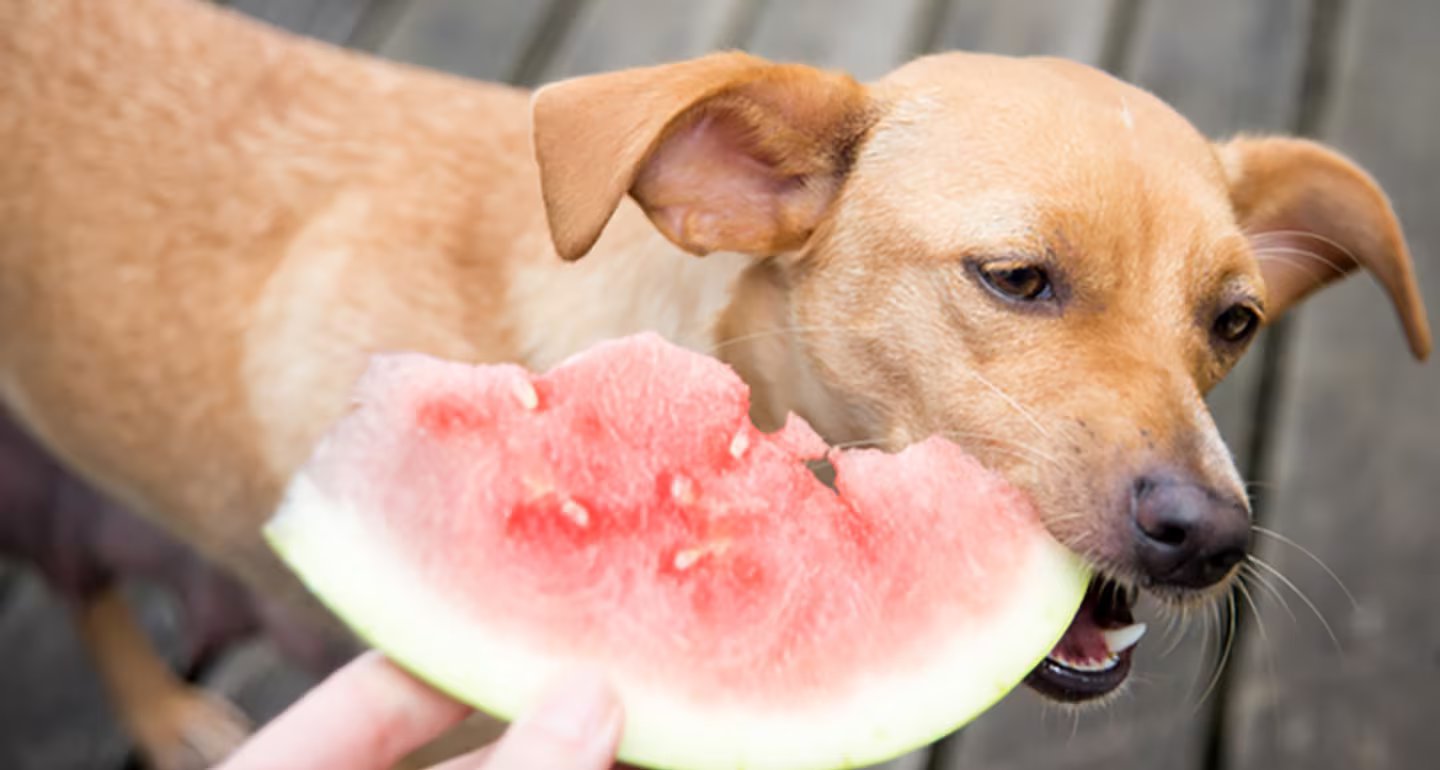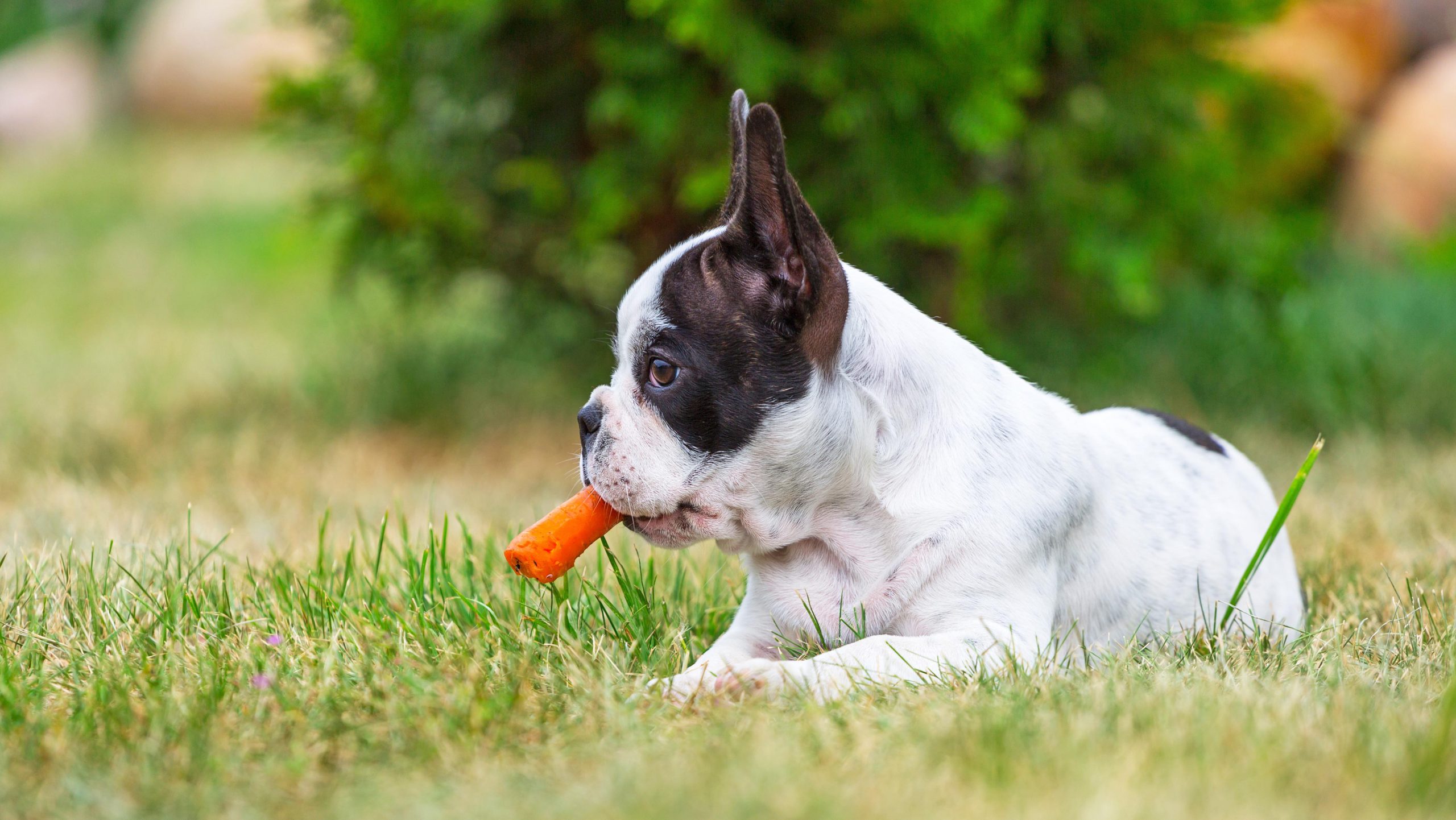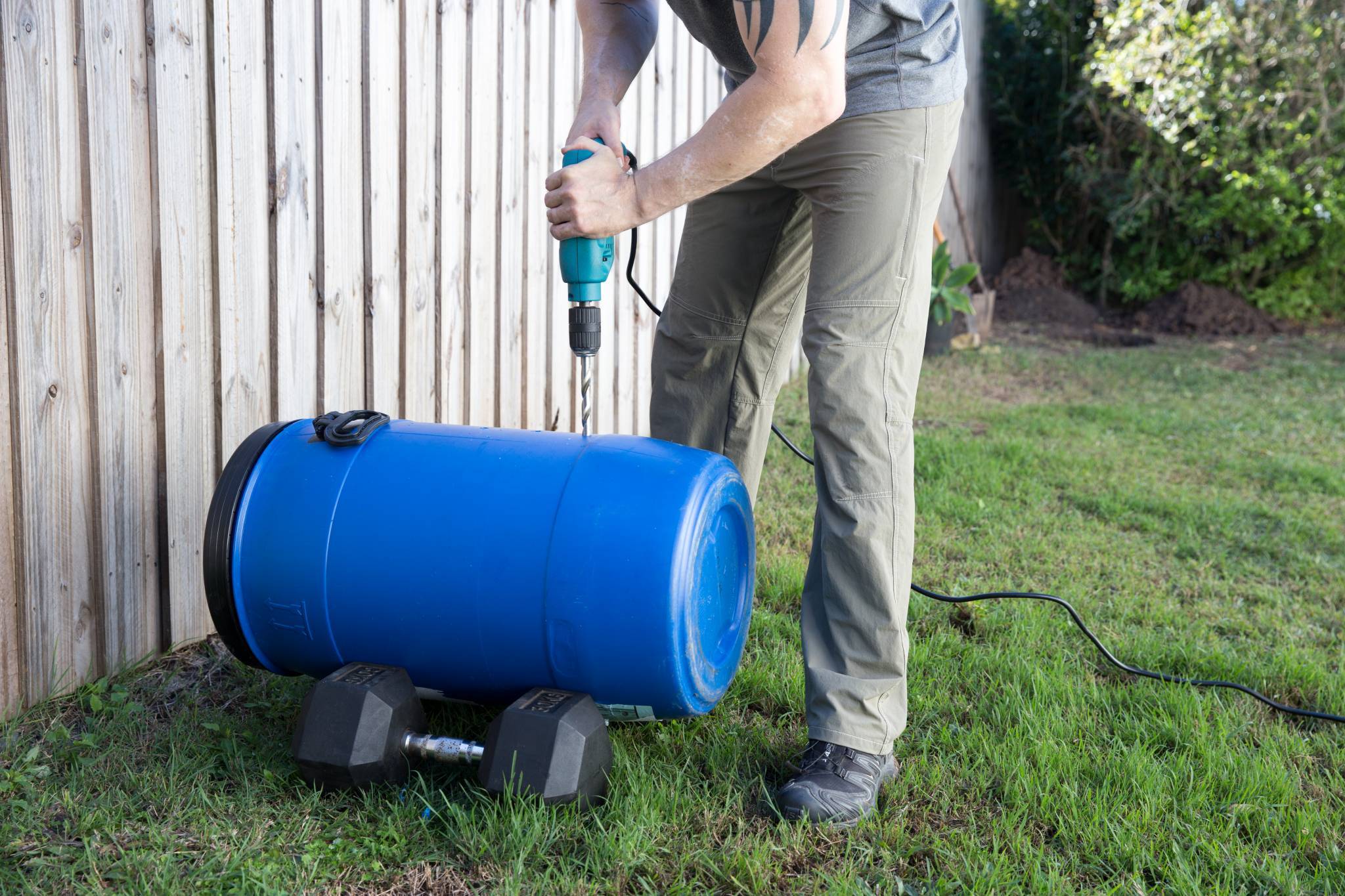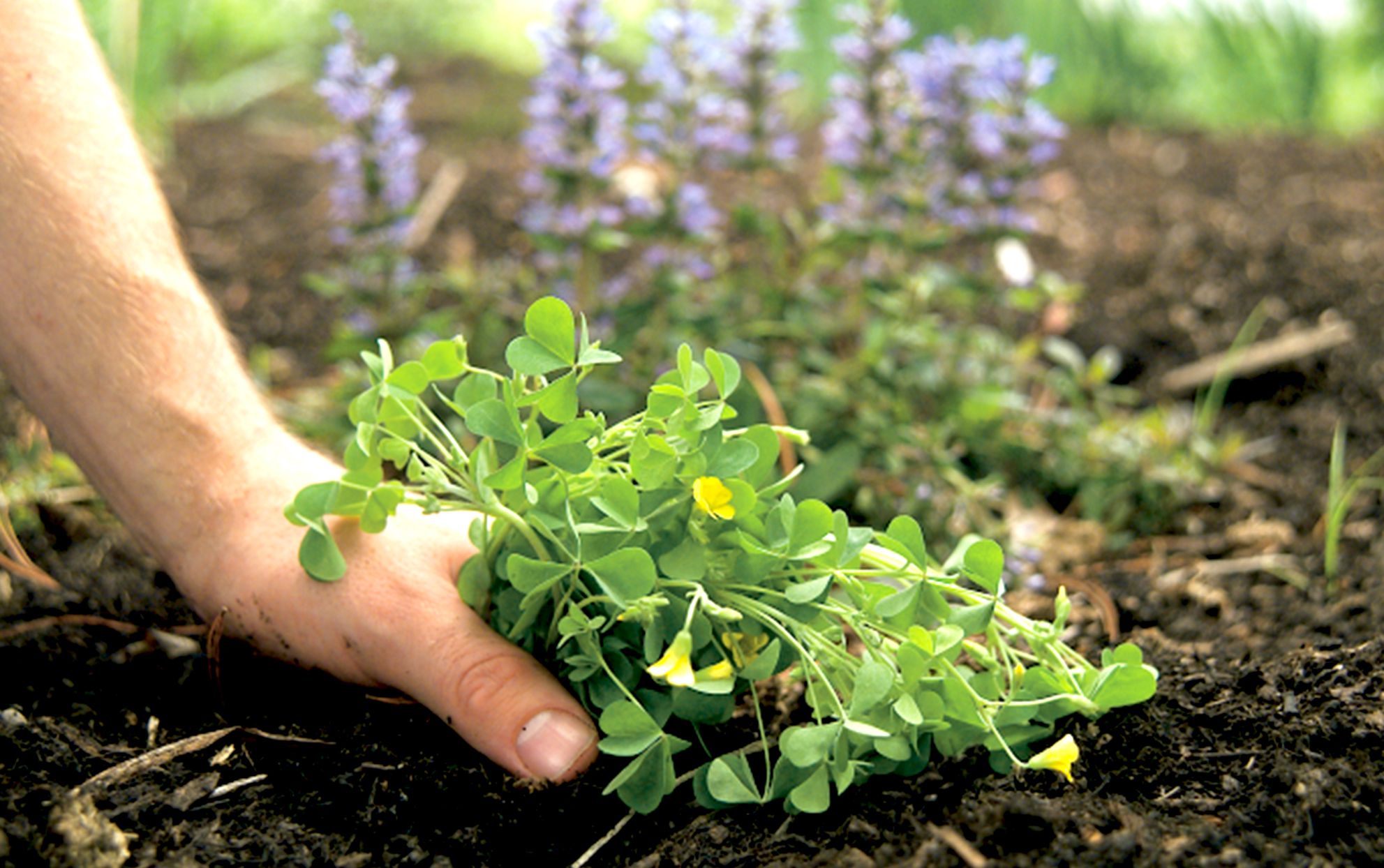Home>Gardening Basics>Getting Started>What Weeds Are Poisonous To Dogs


Getting Started
What Weeds Are Poisonous To Dogs
Published: December 17, 2023
Learn about the common weeds that can be toxic to dogs and how to identify and remove them from your garden. Getting started with ensuring your dog's safety.
(Many of the links in this article redirect to a specific reviewed product. Your purchase of these products through affiliate links helps to generate commission for Chicagolandgardening.com, at no extra cost. Learn more)
Table of Contents
Introduction
Welcome to our comprehensive guide on keeping your furry friend safe from the dangers of poisonous weeds. As a responsible pet owner, it’s crucial to be aware of the potential hazards that certain plants pose to dogs. While exploring the great outdoors can be an exciting adventure for our canine companions, they may come across various types of weeds that can be harmful if ingested.
While you may have taken the necessary precautions to create a safe environment for your dog at home, it’s essential to extend that level of care to your outdoor activities as well. By familiarizing yourself with the common weeds that are poisonous to dogs and knowing the signs and symptoms of weed poisoning, you can take immediate action in case of an unfortunate incident.
In this guide, we will provide you with essential information about toxic weeds, signs of poisoning, and the appropriate steps to take to ensure your dog’s well-being. Additionally, we will share valuable tips on preventing weed poisoning, allowing your four-legged friend to explore the world around them without unnecessary risks.
Remember, prevention is key when it comes to protecting your dog from poisonous weeds. By educating yourself and taking necessary precautions, you can provide a safe and nurturing environment for your dog to thrive in.
Let’s dive into the details and learn about the common weeds that can pose a danger to our beloved pets.
Common Weeds That Are Poisonous to Dogs
While many plants are harmless to dogs, there are several common weeds that can be toxic if ingested. It’s important to be able to identify these weeds to prevent your dog from coming into contact with them. Here are some of the most common poisonous weeds that pet owners should be aware of:
- Datura (Jimsonweed): Datura is a highly toxic weed that contains alkaloids that can be extremely dangerous for dogs. Ingesting any part of the plant can cause symptoms such as dilated pupils, confusion, increased heart rate, and even seizures.
- Foxtails: Foxtails are not technically weeds, but they are common grass-like plants that can harm dogs. The barbed seeds of foxtails can easily become lodged in a dog’s paws, ears, or throat, leading to irritation, infection, and other complications.
- Lily of the Valley: This flowering plant may be beautiful, but it is highly toxic to dogs. Ingesting even a small amount of Lily of the Valley can cause symptoms such as vomiting, diarrhea, irregular heartbeat, and in severe cases, seizures.
- Sago Palm: The Sago Palm, also known as Cycas revoluta, is a common landscaping plant that is highly poisonous to dogs. Ingesting any part of the plant, but especially the seeds, can cause liver failure, seizures, and even death if not treated promptly.
- Castor Bean Plant: Castor bean plants contain a toxic compound called ricin, which can be lethal to dogs if ingested. Symptoms include nausea, vomiting, diarrhea, abdominal pain, and, in severe cases, organ failure.
These are just a few examples of the numerous toxic weeds that can pose a threat to our canine companions. It’s essential to research and identify the plants in your surroundings and take steps to avoid exposing your dog to these dangerous plants.
Signs and Symptoms of Weed Poisoning in Dogs
Recognizing the signs and symptoms of weed poisoning in dogs is crucial for prompt intervention and treatment. The symptoms can vary depending on the type of weed ingested and the quantity consumed. Here are some common signs of weed poisoning in dogs:
- Gastrointestinal Issues: Digestive problems, such as vomiting, diarrhea, and loss of appetite, are common symptoms of weed poisoning. Pay attention to any sudden changes in your dog’s eating habits or bowel movements.
- Excessive Drooling: Excessive drooling or hypersalivation may indicate that your dog has ingested a toxic weed. If you notice your dog drooling more than usual, it’s essential to investigate the cause.
- Behavioral Changes: Dogs affected by weed poisoning may display unusual behavior such as restlessness, agitation, lethargy, confusion, or disorientation. Keep an eye out for any significant changes in your dog’s behavior.
- Respiratory Distress: Ingesting certain toxic weeds can cause respiratory issues in dogs, including coughing, difficulty breathing, wheezing, or rapid breathing. These symptoms require immediate veterinary attention.
- Neurological Symptoms: Some toxic weeds can affect the dog’s nervous system, leading to symptoms such as tremors, seizures, stumbling, or difficulty coordinating movements. These signs are severe and should never be ignored.
It’s important to note that the onset and severity of symptoms can vary depending on factors such as the size of the dog, the amount of the toxic weed ingested, and individual sensitivity. If you suspect that your dog has ingested a poisonous weed, it’s crucial to seek veterinary care immediately.
Remember that early detection and treatment can significantly increase the chances of a positive outcome. Do not attempt to treat your dog at home without the guidance of a veterinarian. Veterinary professionals are trained to handle cases of weed poisoning and can provide the appropriate medical care and support for your furry companion.
Immediate Actions to Take if Your Dog Ingests a Poisonous Weed
Discovering that your dog has ingested a poisonous weed can be a distressing situation. It’s important to take immediate action to minimize the potential harm and ensure the well-being of your beloved pet. Here are the steps you should take if your dog ingests a poisonous weed:
- Stay Calm: It’s understandable to feel anxious, but it’s crucial to remain calm and focused to handle the situation effectively. This will help both you and your dog during this time of crisis.
- Identify the Plant: If possible, try to identify the plant that your dog ingested. Take a clear picture of the plant or collect a sample for later identification. This can assist the veterinarian in determining the appropriate course of action.
- Contact Your Veterinarian: Call your veterinarian immediately and describe the situation. Provide them with the details of the plant and any symptoms your dog is experiencing. Follow their guidance on whether to bring your dog in for emergency care or take any initial home remedies.
- Do Not Induce Vomiting: While inducing vomiting is sometimes recommended in cases of poisoning, it is essential to seek professional advice before attempting to do so. Certain toxins can cause more harm if vomited back up, so it’s best to follow your veterinarian’s instructions.
- Monitor Your Dog: Keep a close eye on your dog’s symptoms and behavior while waiting for further instructions from your veterinarian. Make note of any changes or worsening of symptoms to report to the veterinarian promptly.
- Do Not Administer Any Medications: Avoid giving your dog any medications or home remedies without consulting your veterinarian first. Some substances that may seem harmless can actually exacerbate the situation or negatively interact with veterinary treatments.
- Follow Veterinarian’s Advice: Once you have contacted your veterinarian, closely follow their instructions for further treatment. If necessary, bring your dog to the veterinary clinic for immediate evaluation and care.
Remember, time is of the essence when dealing with a potential poisoning. Acting quickly and seeking professional help can greatly increase the chances of a positive outcome for your dog. Prioritize their well-being and always trust the expertise of your veterinarian throughout the process.
Preventing Weed Poisoning in Dogs
Prevention is crucial when it comes to keeping your dog safe from weed poisoning. By taking proactive measures, you can greatly reduce the risk of your dog coming into contact with toxic plants. Here are some essential tips to prevent weed poisoning in dogs:
- Familiarize Yourself with Toxic Weeds: Educate yourself about the common weeds that are toxic to dogs in your area. Learn to identify these plants and be vigilant when walking your dog in parks, hiking trails, or your backyard.
- Secure Your Yard: Regularly inspect your yard and remove any toxic plants or weeds that may be growing. Create a safe and enclosed environment by properly fencing your yard, preventing your dog from accessing areas where toxic plants may be present.
- Supervise Outdoor Activities: When your dog is outside, be present and attentive. Keep a close eye on their activities, especially during walks or while in unfamiliar locations. This way, you can quickly intervene if they attempt to ingest any plants.
- Train “Leave It” Command: Teach your dog the “leave it” command to prevent them from approaching or consuming any unknown substances they may encounter during walks. This command can be a lifesaver when it comes to preventing your dog from ingesting toxic plants.
- Stay Informed: Stay updated on local alerts and news about toxic plants in your area. Different regions may have different plants that pose a risk to dogs, so being aware of the specific dangers in your location is vital.
- Keep Your Dog on a Leash: Keep your dog leashed when in public areas or unfamiliar environments. This ensures that you have better control over their movements and can prevent them from wandering off and encountering potentially toxic plants.
- Consult Your Veterinarian: If you have concerns about specific plants or unsure if your yard contains any toxic weeds, consult your veterinarian. They can provide guidance on the plants to avoid and suggest safe alternatives for landscaping or gardening.
By implementing these preventive measures, you can significantly reduce the risk of weed poisoning in your furry friend. Remember, your dog’s health and safety should always be your top priority. With proper care and vigilance, you can create a secure environment where your dog can enjoy the outdoors without unnecessary exposure to toxic plants.
Conclusion
Ensuring the safety and well-being of our precious canine companions is of utmost importance, and protecting them from the dangers of poisonous weeds is a crucial part of responsible pet ownership. By familiarizing yourself with common toxic weeds, recognizing the signs of weed poisoning, and taking immediate action if ingestion occurs, you can help mitigate potential harm to your beloved pet.
Prevention should always be a priority. By staying informed, securing your yard, supervising outdoor activities, and training your dog to avoid unknown substances, you can greatly reduce the risk of weed poisoning. Additionally, regularly consulting with your veterinarian and following their guidance can further enhance your dog’s safety.
Remember, quick action is key in the event of a poisoning incident. Contact your veterinarian immediately and provide them with all the relevant information. Follow their advice without delay to ensure your dog receives the necessary care and treatment.
By implementing these preventive measures and fostering a vigilant mindset, you can create a safe environment for your dog to explore and enjoy without unnecessary risks. Together, let’s keep our furry friends safe from the dangers of poisonous weeds for a happy and healthy companionship.




